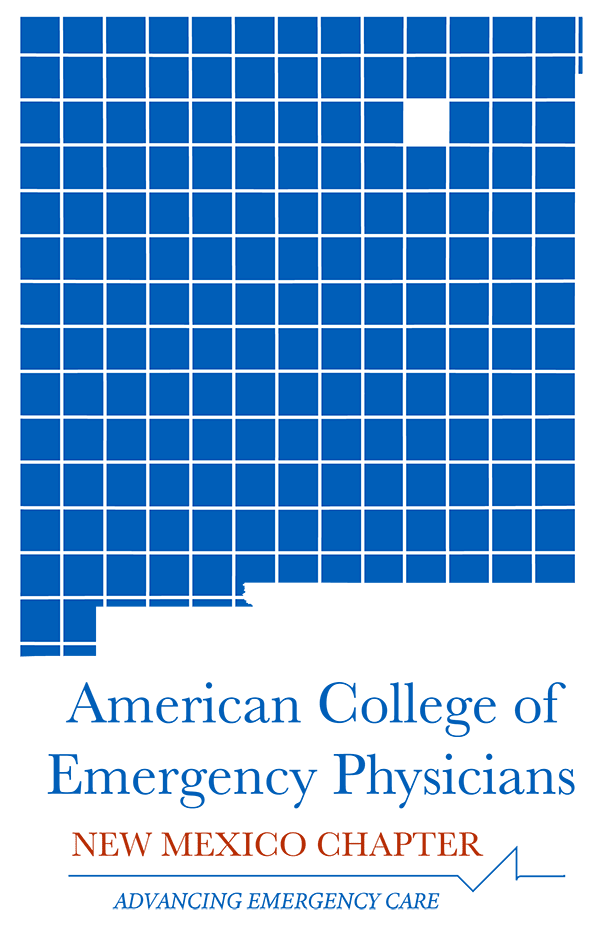Ralph Bauer, MD
PGY-2, Department of Emergency Medicine
University of New Mexico
EMS rolls the patient to a bed. It’s apparent she needs to stay in the resuscitation area: diaphoretic, tachypneic, tachycardic, hypoxic on a non-rebreather, a borderline blood pressure, and a history of severe COPD. The patient is transferred to a bed as the nurse, respiratory therapist, and techs swarm. They connect beeping monitors, establish IV access, and affix oxygen devices. All eyes turn to me: “What do you want to do?”
An all too common question but asked with even more urgency and impatience since starting PGY2. Lately even taking a second to think feels too long. The attending is occupied. I’m in charge. A slight pang of anxiety shoots through me. I know what to do, but my recent escalation of responsibility has left me more cautious and unsure. I take a breath and rattle off orders: nebs, BiPAP, fluids, antibiotics, steroids, labs, imaging, EKG. The staff seem to approve. I run through my plan for potential intubation and retreat to my computer for a chart biopsy. My eyes never leave the vitals on the monitor. The numbers slowly improve. I’m relieved the situation has passed without harm done to the patient or my standing in the ED hierarchy. As a new senior resident, I constantly feel the pressure of proving my worth to the attendings and ED staff. Earning their trust is essential and standards are understandably high.
I leave the resuscitation area and return back to the “cubes”. The chart rack is full of patients waiting to be seen. The waiting room is overflowing. I feel the heaviness of a hospital with too few resources for such an underserved population. It’s well into my shift, and I’ve done very little charting. I start a note for a patient I discharged hours ago when a nurse makes eye contact with me. “I think the patient in 46 has DKA; can you see them next?” I agree and grab the chart from the rack. “How do I print off a prescription again?” the intern asks sheepishly. It’s his first shift, and he is full of questions for me. I sympathize, thinking of how lost I was when I was in his place. Somehow, navigating our health care systems gets both easier and more difficult as time goes by. The thought reminds me of my pending “placement” patients: the uninsured dementia patient with no family contacts who isn’t safe to go back to the streets; the hypoxic patient who needs home oxygen but has no home.
Only 5 more minutes of charting pass before another nurse approaches me. “Room 51 has an elevated troponin and still hasn’t been seen.” I’m already overwhelmed but take satisfaction in the nurses now knowing my name and trusting me with their sickest patients. I’ve enjoyed feeling more like an essential part of the ED team recently. I give up charting and go to check on my two new patients and my long list of existing patients. The post-shift documentation continues to pile up. Many of my patients are sign-outs from the night team. My shifts have now become a balancing act of managing large sign-outs while trying to keep up with the pace of a busy ED. As I interview the NSTEMI in 51, my pager rings out. I’m up for the next patient: hypotensive GI bleed, eta 10 minutes.
The shift never lets up. I stay 2.5 hours after my shift’s end. This is the new norm. I feel the dull buzz of a hectic shift’s hangover as I get home. My dog greets me, tail wagging and bone in her mouth. A temporary distraction before the responsibilities of residency invade my thoughts: patient follow ups, endless “logging”, QI and research projects needing attention, my email inbox full and begging to be cleared, and always the thought that I should be studying more. I collapse on the couch with hunger and exhaustion. Only 12 hours until I return to the ED and repeat it all again.
I have a lot to think about as I reflect on the first month of PGY2 that has just flown by. I can’t help but feel some anxiety, insecurity, and frustration. Anxiety from high stress interactions. Insecurity at feeling like I never know enough. Frustration with the difficult and often inefficient systems I deal with daily. But at the same time, this month has brought so much more to be thankful for, to be motivated by, and to feel proud of. Medicine and residency can be full of rough days, but the rough days are worth the privilege I feel it is to practice emergency medicine.
